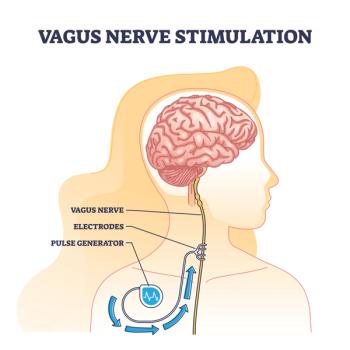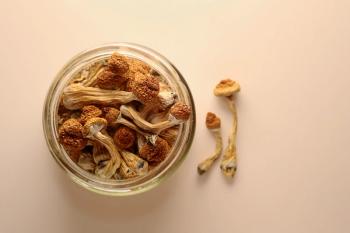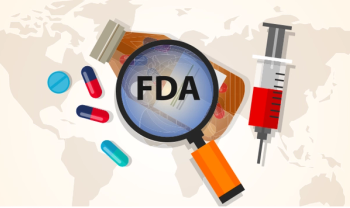
- MHE March 2024
- Volume 34
Psychedelics: Once Outcasts, Now in Trials
Biotech companies and researchers are investigating whether psychedelics could be used to treat a variety of mental health problems, including post-traumatic stress disorder and depression.
After going dormant for decades because of government restrictions, research focusing on the use of psychedelics for the treatment of psychiatric conditions has sprung to life. Research conducted in this area in the 1950s and 1960s — remember
In 1992, meetings between the National Institute on Drug Abuse (NIDA) and the FDA resulted in the resumption of research into psychedelic substances. Psychedelics remain Schedule I substances, but the two agencies agreed that the potential benefits of conducting human research on psychedelics outweigh the risks to individuals and society. Consequently, the FDA allowed for psychedelics research to be conducted on human subjects. Before that, this type of research was limited to animals.
According to a recent analysis of FDA-registered psychedelic trials, there have been at least 80 studies started since 2017. Close to half of these have been on cannabis and cannabinoids, with psilocybin and methylenedioxymethamphetamine (MDMA) coming in second and third, respectively. Michael Pollan’s 2018 bestseller, “How to Change Your Mind: What the New Science of Psychedelics Teaches Us About Consciousness, Dying, Addiction, Depression, and Transcendence,” helped popularize the notion that small doses of psychedelics could be used to treat to mental health conditions.
NIDA defines psychedelics as substances that “can temporarily alter a person’s mood, thoughts and perceptions.” For the FDA, the term psychedelics encompasses 5-HT2 agonists, such as psilocybin and lysergic acid diethylamide, and entactogens or empathogens, such as MDMA.
Currently, psychedelics are being investigated as potential treatments for numerous conditions, including substance use disorder, post-traumatic stress disorder (PTSD), treatment-
resistant depression, generalized anxiety disorder and fibromyalgia.
FDA guidance
To provide general direction for sponsors and companies developing psychedelic agents, the FDA drafted a guidance in June 2023 with the purpose of providing an outline to help researchers design clinical trials for psychedelics under investigational new drug applications.
The recommendations address topics such as clinical pharmacology, potential drug-drug and drug-
disease interactions, the risk of cardiac adverse events and assessment of abuse potential. Additionally, the guidance discusses the challenges with study blinding and placebo comparisons, given the apparent effects expected with
study psychedelics.
Dozens of psychedelic substances are being researched in what some are calling a renaissance of psychedelic substances for medical purposes, not the consciousness raising promoted by Leary and others. Here are three of them.
Ketamine
Ketamine is approved as an injectable, short-acting anesthetic for use in humans and animals. Awakn Life Sciences, a biotechnology company based in Toronto, is investigating the use of ketamine along with cognitive behavioral therapy for relapse prevention in adults with alcohol use disorder. The company is currently conducting a phase 3 trial of an intravenous ketamine formulation for potential use in the U.K. An oral thin film formulation for sublingual administration is in phase 2 trials for potential use in the U.S. market.
MDMA (midomafetamine)
MDMA is a synthetic entactogen that produces enhanced enjoyment of tactile or sensory experiences and an alert state of consciousness. The drug can increase feelings of self-awareness and empathy and reduce feelings of fear. By binding to presynaptic transporters, MDMA induces serotonin release and promotes monoamine reuptake inhibition and release. Ecstasy and molly are forms of the drug used for recreational purposes that contain harmful contaminants.
California-based Lykos Therapeutics (formerly known as Multidisciplinary Association for Psychedelic Studies Public Benefit Corporation) is developing midomafetamine, another name for MDMA, for potential use in MDMA-assisted therapy for PTSD. The company recently announced positive phase 3 trial results for experimental MDMA-assisted therapy for moderate to severe and severe PTSD.
The trial, called MAPP1, compared the safety and efficacy of MDMA-
assisted therapy with placebo in adults with severe PTSD. The study enrolled 131 individuals with severe PTSD. Of these participants, 91 were randomly assigned to receive MDMA-assisted therapy or placebo with therapy during three experimental sessions spaced four weeks apart. Each session lasted eight hours. During the first session, participants received 80 milligrams (mg) of MDMA or placebo, followed by a 40-mg dose 90 to
120 minutes later. During the second and third sessions, enrollees received 120 mg of MDMA or placebo followed by a 60-mg dose.
Prior to the experimental sessions, participants underwent three preparatory sessions. Each experimental session was followed by three nonpharmacologic integrative sessions spaced one week apart. The primary end point was the change in the Clinician-Administered PTSD Scale for DSM-V (CAPS-5) total severity score from baseline to 18 weeks.
At 18 weeks, 67% of participants in the MDMA group showed a significant reduction in CAPS-5 scores (no longer met the criteria for PTSD) compared with 32% of those who received placebo. Adverse events in the MDMA group were generally mild to moderate and included decreased appetite, muscle tightness and increased sweating. No increase in suicidal thoughts or actions was reported in the MDMA group.
The MAPP2 study was a phase 3 trial of similar design investigating the safety and efficacy of MDMA-
assisted therapy in adults with moderate to severe PTSD. At 18 weeks, 71.2% of the participants in the MDMA group no longer met the criteria for PTSD versus 47.6% of participants in the placebo group. Safety outcomes were consistent with those of the MAPP1 trial.
Lykos filed an application with the FDA in December 2023 for the approval of MDMA (midomafetamine capsules)-assisted therapy for PTSD. In 2017, the FDA granted breakthrough therapy designation to MDMA-
assisted therapy. The company is now requesting priority review of the application. A decision is expected later this year. If the treatment is approved, MDMA would need to be reclassified from being a Schedule I substance.
COMP360 (psilocybin)
Psilocybin is a classic hallucinogen produced by more than 100 species of mushrooms worldwide. It is a strong 5-HT2A (serotonergic) receptor agonist and a moderate agonist at other serotonergic receptors. London-based biotechnology company Compass Pathways is investigating the efficacy, safety and tolerability of COMP360 psilocybin therapy along with psychological support and digital tools in adults with treatment-
resistant depression.
The company is conducting two phase 3 studies with the primary end point of changes in Montgomery-
Asberg Depression Rating Scale scores from baseline to six weeks. The COMP 005 study will randomly assign participants to receive one 25-mg dose of COMP360 or placebo. The COMP 006 study participants will be randomly assigned to receive two 25-mg, 10-mg or 1-mg doses of COMP360 spaced three weeks apart. In both trials, the investigational treatment will include psychological support and the use of an app or online digital tools. Top-line results from the COMP 005 trial are expected in late 2024 and mid-2025 for the COMP 006 trial.
Rosanna Sutherby, Pharm.D., is an independent medical writer and community pharmacist in High Point, North Carolina.
Articles in this issue
almost 2 years ago
A Conversation With Greg Baker, RPh, CEO of AffirmedRxalmost 2 years ago
The other, smaller (cell) lung canceralmost 2 years ago
Upended: Can PBM Transparency Succeed?Newsletter
Get the latest industry news, event updates, and more from Managed healthcare Executive.























